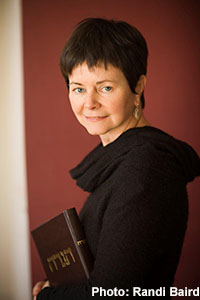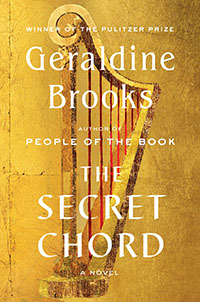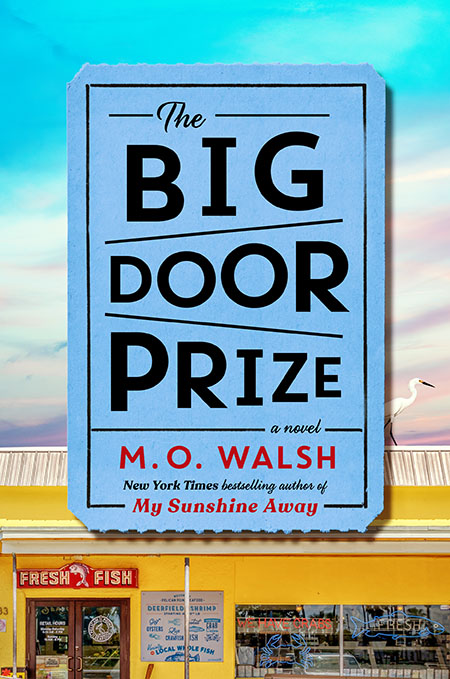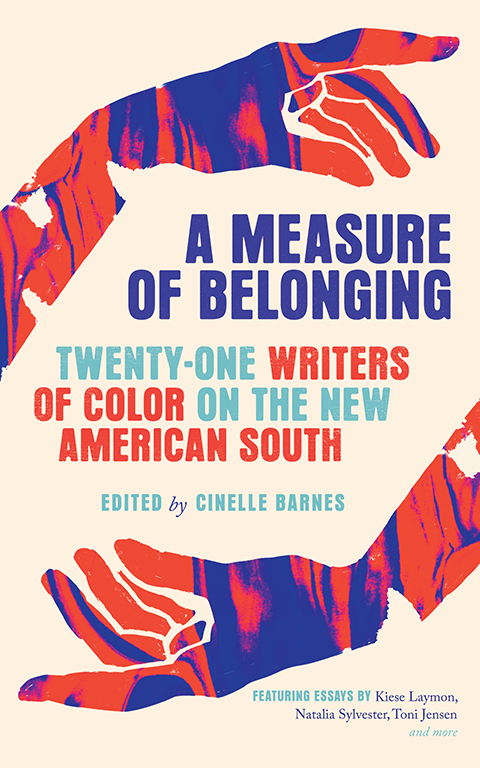No Other Human Noise
Geraldine Brooks’s The Secret Chord imagines the life and relationships of the Bible’s King David
The narrator of Geraldine Brooks’s The Secret Chord—a reimagining of the relationships and stories surrounding the Biblical figure King David—has his work cut out for him. Prophet and servant Natan has received an order from David to write an unvarnished chronicle of the man David truly is. Mulling the implications of this task, Natan observes: “The stories that grow up around a king are strong vines with a fierce grip. They pull life from whatever surfaces they cling to, while the roots, maybe, wither and rot until you cannot find the place from which the seed of the vine has truly sprung.” He unfolds this image as a kind of question, posed to both the sweeping forces of history and to the flawed man he serves.
 The Secret Chord marks another fascinating addition to Brooks’s body of work, which has featured many bold depictions of pre-modern lives, including Year of Wonders, the story of plague-ridden English villagers’ fight to retain their lives’ meaning; Caleb’s Crossing, which concerns the Harvard education of a seventeenth-century Native American man; and People of the Book, a chronicle of the numerous hands protecting an illuminated Hebrew manuscript through the Middle Ages. Brooks’s work has shown unfailing respect for the psychological complexity of the human mind in every era she has addressed. In The Secret Chord, the wives, relatives, servants, and soldiers who populate David’s life prove no exception.
The Secret Chord marks another fascinating addition to Brooks’s body of work, which has featured many bold depictions of pre-modern lives, including Year of Wonders, the story of plague-ridden English villagers’ fight to retain their lives’ meaning; Caleb’s Crossing, which concerns the Harvard education of a seventeenth-century Native American man; and People of the Book, a chronicle of the numerous hands protecting an illuminated Hebrew manuscript through the Middle Ages. Brooks’s work has shown unfailing respect for the psychological complexity of the human mind in every era she has addressed. In The Secret Chord, the wives, relatives, servants, and soldiers who populate David’s life prove no exception.
Natan plays a precarious role in the court as he dances warily between servant and oracle. From the outset of his painful, disorienting visions, Natan understands that his role will always set him apart from ordinary lives: “I knew all of this, even then, a boy of ten years. No other human noise was to come between that mysterious voice and me.” These prophecies give him a vital role in David’s court, but they also force him to speak with the kind of bluntness and challenge no one else would dare.
Natan’s visions force him into perpetual encounters with paradoxical experience. For example, a decisive moment in an enemy camp prompts him to offer his own counsel to David. But when he speaks, the voice of prophecy comes roaring out instead, giving David exactly the opposite advice. Perhaps because of these unusual states of being, Natan becomes a compassionate but discerning guide for David, whose life is brimming with contradictions and paradoxes. At times, David’s considerable lust for women he shouldn’t bed creates political or military complications. He lives by a code of loyalty but can kill innocents without mercy.
 Brooks never downplays the bloody cost of pursuing destiny. As a crucial component of his depiction of David’s rise, Natan details the gore-filled skirmishes of David’s time as an outlaw leader, attacking villages in service of his larger fate. After David has killed Natan’s own father—prompting Natan’s first prophecy—he spares the young boy and brings him into his outlaw fold.
Brooks never downplays the bloody cost of pursuing destiny. As a crucial component of his depiction of David’s rise, Natan details the gore-filled skirmishes of David’s time as an outlaw leader, attacking villages in service of his larger fate. After David has killed Natan’s own father—prompting Natan’s first prophecy—he spares the young boy and brings him into his outlaw fold.
To explain his reasoning for these killings, David tells him: “I killed your father because if his refusal of my request had been allowed to stand, word of it would have spread, and I would not be able to feed my people—people who have risked everything for me. I can’t allow that. It’s the bargain I’ve made. They would die for me, so I must live for them.” Despite the fact that David has murdered his father, along with countless others, Natan becomes fiercely loyal, drawn to David’s mesmeric presence and ability to lead. Still, he remembers all too well the human toll behind those grand stories of battle.
A novel like The Secret Chord presents formidable conceptual challenges, with potential pitfalls of anachronism or oversimplification. It also makes tough stylistic demands. Brooks manages to buoy the authenticity of the novel’s conceit through the enchanting force of her prose. This language feels woven from the past, never becoming stilted costume. And Natan’s role as an oracle creates a sense of mystical possibility within his narrative voice. He has given himself over, entirely, to David’s story: “I knew that my lips and tongue were moving, but I could not hear my own words because my head was ringing like a stone under the blows of an iron mallet, blows that beat the blood behind my eyes. I stood there, in the crimson-misted ruins of my own life, and the words poured out.”
The Secret Chord shows particular regard for storytellers and for the complexity of sacred texts. As Natan’s inquiries dig further inside the man behind the crown, the roots of Brooks’s story never wither. In fact, they barrel into darker, richer soil, heading straight for the deepest mysteries.

Emily Choate holds an M.F.A. from Sarah Lawrence College. Her fiction is forthcoming from The Florida Review, Tupelo Quarterly, and The Double Dealer, and her nonfiction has appeared in Late Night Library, Yemassee, and elsewhere. She lives in Nashville, where she’s working on a novel.


